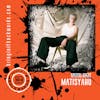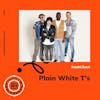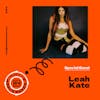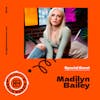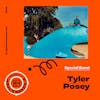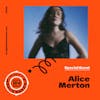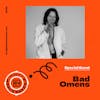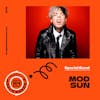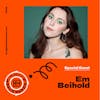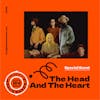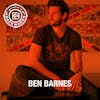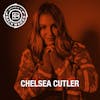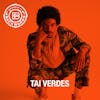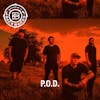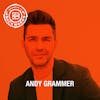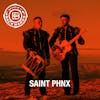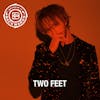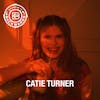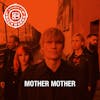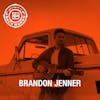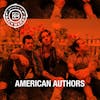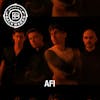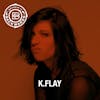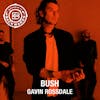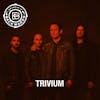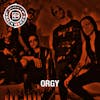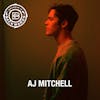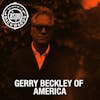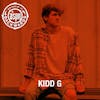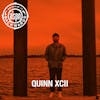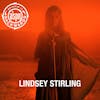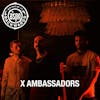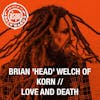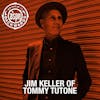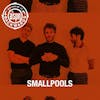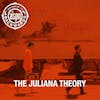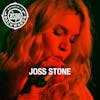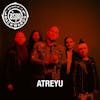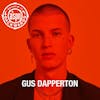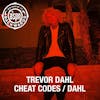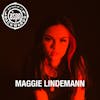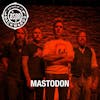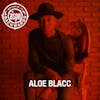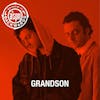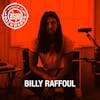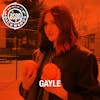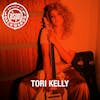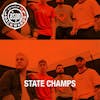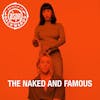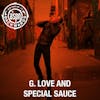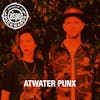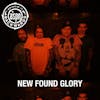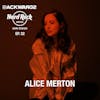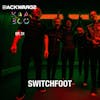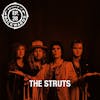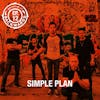Interview with Devin Kennedy
We had the pleasure of interviewing Devin Kennedy over Zoom video!
Shot inside of a hot air balloon, “Follow Through” was not only written and produced by Devin, but the video was also directed by him. To put it simply, “Follow Through” is about...
We had the pleasure of interviewing Devin Kennedy over Zoom video!
Shot inside of a hot air balloon, “Follow Through” was not only written and produced by Devin, but the video was also directed by him. To put it simply, “Follow Through” is about the sacrifices we all make in the pursuit of our life-long goals and aspirations. Missing birthdays, holidays, important moments, losing touch with old friends and family is, unfortunately, part of the equation for anyone with big ambitions. “Follow Through” showcases Devin’s innate ability to craft deeply personal narratives into catchy melodies. With lyrics created from his own personal experiences; Devin balanced working 40 hours a week after graduating from high school to put himself through Berklee College of Music, while also releasing music independently.
While in college, Devin saved-up his royalties from collaborating with artists like Ben Platt, Ryan Tedder, Andy Grammer, R3HAB, Jake Miller, James Maslow, Alex Aiono (and more), and started investing his profits into cryptocurrencies. This allowed Devin to remain independent by self-funding the release of his debut EP SunDayDreams in the summer of 2021.
Since 2018, Kennedy has been steadily releasing successful singles including, “No Worries” and “Something Bout That Feeling,” which featured a re-mastered sample of his late grandfather on the piano. Devin kicked off 2020 with his high-flying singles “Happy Yet” and “No Parachute,” which received 2 million TikTok page views within two weeks of release.
We want to hear from you! Please email Tera@BringinitBackwards.com.
www.BringinitBackwards.com
#podcast #interview #bringinbackpod #DevinKennedy #Songland #NewMusic #zoom
Listen & Subscribe to BiB
https://link.chtbl.com/BiB
Follow our podcast on Instagram and Twitter!
https://www.facebook.com/groups/bringinbackpod
We'd love to see you join our BiB Facebook Group.
1 (27s): Hello. It is Adam. Welcome back to bringing it backwards. A podcast where both legendary and rising artists tell their own personal stories of how they achieve stardom. On this episode, we had a chance to chat with Devin Kennedy. Over zoom video, Devin was born and raised in Los Angeles. He comes from a very musical household. His dad wrote music for different commercials and films. Devin started his musical journey on the drums. He played that for a number of years, played drums in a band in eighth grade, and eventually got the courage to sing and play guitar. He was writing the song for the band, but he never had the courage to actually sing them. So he was always the drummer. He attended school at Berkeley school of music. We talk about that, go into Boston, working 40 hours a week while also getting his degree from Berkeley different songwriting sessions. 1 (1m 14s): He's done over the course of the years, a song that he wrote ended up making it onto song land. So we talk about that. We talk all about his artist project, the EAP he released and the summer last year, and all about this new batch of songs that he's releasing with the most recent song called follow through. And we talk all about the music video that he directed himself. You can watch the interview with Devin on our Facebook page and YouTube channel at bringing it backwards. We'd love it. If you subscribe to our channel like us on Facebook, follow us on Instagram, Twitter, and Tik TOK at bringing back pod. And if you're listening to this on Spotify or apple podcasts, it'd be awesome. If you follow us there and hook us up with a five star review, 2 (1m 54s): We'd appreciate your support. If you follow and subscribe to our podcasts, wherever you listen to podcasts, 1 (2m 1s): We're bringing it backwards with Devin Kennedy. This is about you, your journey of music. And we'll talk about the new record coming out with in about 10 days or so 3 (2m 11s): 10 days. 1 (2m 12s): Awesome. Awesome. It looks like you have quite the music history within your yet at least yourself, but tell me about where you're born and raised. And I want to get into how you got into music. 3 (2m 25s): Totally. I'm from Los Angeles, born and raised a Southern part of Los Angeles. One of the, the only people from LA that decided to stay in the music industry. I think 1 (2m 36s): One of the very rare is people that are born and raised and said, no, 3 (2m 40s): Definitely. I feel like you get a lot of Tran the transplants in the music industry, but very rarely do you hear about somebody from LA? So, yeah, I was kind of always in it. I mean, something I wanted, you know, wanting to be in music since I was really, really young. I grew up in a musical family. My dad plays guitar and bass and used to produce like film and TV music. So I was kind of in and out of studios, growing up, meeting random people, playing in bands, you know, the whole thing. And then in high school I started self producing my band. I really wanted to be on warp tour. I wanted to say, go around pop playing pop punk music. 1 (3m 18s): You know, that's a dream in high school. 3 (3m 20s): It was man. It was, it was a good time. We would, we would be torn on our, our winter breaks and stuff. You know, self booking, self booking tours, getting out, playing to nobody, you know, all that good stuff. And, and yeah. Then, you know, once I started college, started a music production and business and kinda just started doing my own thing, decided that I was kind of carrying a lot of the weight of the band. So I might as well just be a solo artist. And that was a few years ago now kind of took like a couple of iterations of my project to get to where I wanted to be for, for releasing EPS and all that good stuff. But, but yeah, settled into doing pop songs. 3 (4m 3s): Once I started college, fell in love with, with like the craft of songwriting and producing and kinda just like melding a lot of different genres and worlds together now is my favorite thing to do. 1 (4m 15s): Amazing. I want to back up a little bit here. So you said your dad was a musician. He, he did what scoring from television or something or 3 (4m 23s): More like advertising, like infomercials. He would do the music for those shingles 1 (4m 28s): Or just like the back. Yeah. In 3 (4m 30s): A way, like a lot of background, a lot of background music for like, like someone's trying to sell you like a yoga package and he's got, he's doing the music for the background and things like that. A lot of random gigs, but he, he worked in advertising, but he also loved music. So he's like, why don't I make the music for the advertising? 1 (4m 51s): It's brilliant. That's awesome. And you have to be able to catch it's similar to, I guess, film and TV where you have to capture the feeling of the scene or, I mean, you've got to make a feeling for, if you want to buy, like you said, if you're buying a yoga mat or if you're going on a Caribbean cruise or, I mean, there's different styles, you'd have to be able to create. 3 (5m 9s): Yeah. W we, he, he was doing a lot of different genres, a lot of different things back then, for sure. 1 (5m 16s): Did that draw you to music? I mean, you said you were in and out of studios as a kid. 3 (5m 20s): Definitely. I mean, I was meeting a lot of people, just like random collaborators that he had on some of that stuff. When I was like starting high school, one of his really close friends who became a mentor of mine as a producer, pat Reagan. And he was helping me produce my band when I was younger and really like taught me so much about production and songwriting. And so just kind of like a lot of examples like that, meeting people along the way that really along with my dad really inspired me to want to be on the creative side of music. I don't know if that was like being an artist particularly yet, or if I just wanted to produce or write, I just love doing it. 3 (6m 1s): But even, even before the studio stuff, I mean, we just had guitars around the house. You know, my dad was playing, just playing stuff all the time. And I was like trying to learn guitar with my small hands and you know, all that stuff. So 1 (6m 15s): Yeah. And there's like, you'll hear, you know, parents that had, sometimes kids don't want to do it. Their parents did. Right. It's like, oh, well, if you're doing them, let's not be cool. Or like, and they don't want anything to do with it. That's rather you're able to kind of follow suit with what he liked. And you're also interested in, 3 (6m 32s): Yeah, it was great. I mean, to this day, we, we are, we're super bonded on it. I'll send him, I'll be like, what do you think of this mix, man, check this out, texting things back and forth and sharing songs or whatever, you know, he's, he's all about it. So we, we have a great time just like, you know, collaborating on it. So a bonding thing for us, for sure. 1 (6m 51s): Yeah. Does he like, has he recorded on into your records or anything like that or just calm? 3 (6m 58s): Yeah, he listens ahead of time. He gives me his notes. Sometimes I'm open to them sometimes I'm not, you know, I guess, and there was a point a few years back where he was doing some mastering on my stuff. We just like, you know, stay creative together. So we have a good song. Yeah. And I said a grandfather who was a concert pianist too. So on my mom's side who also, you know, grew up growing up in a musical family, just very, you know, very inspiring to hear the tapes of him playing in the eighties that we have. We just have like amazing recordings of him. So it's kind of just been everywhere since. 1 (7m 38s): Right. But both sides are family. That's awesome. What was the first instrument you learned? Was it guitar when you were trying to noodle around as a kid? 3 (7m 46s): So I got a guitar and my hands are too small. I hated it. And so I just, I decided on drums, which I'm sure my parents loved and I just liked hitting things I think. And so I did that for a long time. I was three or four when I got my first drum kit, so 1 (8m 9s): Okay. My son's five and we got them one over COVID like it started, but we got him the electric kit. So we didn't drive the neighborhood. And same question. 3 (8m 19s): That's an electric irregular. It's electric. You still can hear those pads though. 1 (8m 25s): Yeah. You can hear the pads. It's not nearly as bad. A buddy of mine's a drummer for he drums for a bunch of bands. And he, like, I was like, what do I get him? And he sent me one that has like an actual kick instead of like a trigger kick. So he's like, you want this? So he learns. But like we had it where we just moved to Nashville from San Diego born and raised in California as well. But when we got here, it's a little bit more open and we're able to get somebody to actually that was willing to teach a five-year-old how to play drums. So you just kind of started, which has been cool, but that's awesome. I mean, three, four years old, that's the, I wanted to learn there because that's kind of the instrument everyone needs. Right. I mean, if you can, if you're a drummer you can play with, 3 (9m 8s): I think I would've loved to start on guitar like realistically, or actually maybe even Canno, but I'm glad I started on drums. Not just because, I mean, I did it for so long, like playing in bands and just like learning the ways of the industry before I started. Like, or before I really felt comfortable singing in front of people. You know, when I was like 15, 16, I started fronting the band and singing and all that. I drummed in bands for a long time. And, but what I find now and like all my songwriting, like in my sessions and just like meeting other collaborators to me, the best producer is always the one who started as a drummer. I don't know why that is, but the rhythm is so important. And I just, I'm always like, man, you're such a great producer. 3 (9m 49s): Let me ask you this. Did you start on drums? And they're like, yeah, dude, I did. Every time 1 (9m 53s): That's rad. That's rad to now I want to throw them in piano too, but I haven't found anyone willing to teach a five-year-old piano. 3 (9m 60s): That's a little tedious, 1 (10m 3s): But that's, that's awesome. That's cool to know. Cause yeah, like I said, I put him there cause he was smashing and stuff. I'm like, I need to get them out at like some energy out of this kid and I'll throw him that way, but okay. So you learn drums and you stick, you stuck with that for a while or were you learning guitar and other instruments kind of 3 (10m 19s): Slowly picking up slowly picking up guitar and bass along the way, like middle school, high school really started to get into guitar. And then by the time I was in high school, I was just playing in my band and I was playing guitar and singing and, and kind of put drums on the back burner. And they'd been there ever since, but yeah. And then, and then just started picking up piano as well in, in like high school college, which is still, I wish I would have started on it. Cause it's, I look at the piano, I'm like, this doesn't make any sense to me, even though I know how to play it, but it's still like, like guitar. I don't even have to think about it. You know, I still have to think about piano and I don't like that. 3 (10m 59s): So 1 (11m 1s): Yeah. Wow. Well with the, with the first band that you're in or this band that would, you said tour on winter break or whatever it was, was that your first band that you were in? 3 (11m 10s): I was in a couple, like I did a like summer camp where I did some like covers and played some of my first shows when I was in middle school. Yeah. Like exactly like talent show things at school, like, you know, just random things that popped up. I was playing a lot of covers. And then in middle school, I, I like wrote five or six songs and put out an EAP for my, like my eighth grade project. It was like a thing you had to do for school. And it was like, the teacher helped us put it on iTunes and it was like, the coolest thing ever was iTunes. Like we sold two copies of our AP on my desk and, and that's been taken down long, long, taken down from the internet at this point, but we 1 (11m 54s): Have that. 3 (11m 55s): We have it. Yeah. So, so that was where I started. And then, like I said, in high school, that's when I really started like getting into writing, producing, doing the, the rock band thing and singing it all. And that's what we kind of started sport and that stuff. And that was a lot of fun. That was like my best friends in high school, just jumping in a van and you know, having a great time with 1 (12m 17s): BP you put out with in eighth grade, was that all you are, that was in a band setting and you, 3 (12m 22s): That was in a band. I actually didn't even sing those songs. I wasn't comfortable singing in front of people yet. So I wrote them and then I had a singer sing them and the drummer, I was the drummer. Yeah. Oh wow. That's interesting. Yeah. 1 (12m 33s): Yeah. So you're like, okay. Yeah, I'm going to write all the songs or you're like, I have all this material, but you guys do this, you do what I've heard him about. I wrote and I'm going to play drums. That's awesome. 3 (12m 43s): Yeah. There was one, there was one song that they got me to sing and then I remember doing it live for the first time and I was like, I'm never singing in front of anybody ever again. That was horrible. And then like two years later I was like, all right, it's time to stop. 1 (12m 57s): Yeah. What changed? Like what made you were like, how'd you build confidence enough to be like, you know what, I'm going to just go for it. 3 (13m 3s): I think I just kept writing and I was like, all right. I really love these songs. I think it's probably like, I'm 16 now. Like it's probably time that I faced this sphere and also, you know, just playing with my friends and like them encouraging me to be like, well, why are you, like, why do you want to look for a singer? Like you should just sing them. You know? And I think in the bands I was in, I was getting a little tired of my lead singer too. I'm like, wait, I'm writing the songs and you're doing what? Like, you're this? No, I think it's time for me to get. 1 (13m 34s): Wow. Okay. What was that? What was the band that you started doing that with? Like how long were you guys around for? I mean, to do touring and stuff, you must have established, you know? 3 (13m 46s): Yeah. You'd be surprised. I wouldn't call it established 1 (13m 51s): Toward itself. I mean, that's some, I mean, you're actually looking for like, okay, this is going to be something I want to strive for. This is more than a hobby. Ow. Right. 3 (14m 1s): I took it very seriously. It was my number one priority in high school and yeah, we're, we're probably around for like four, three or four years, put out an album, almost two albums worth of music and yeah, we're just like self book, little tours up and down California coast, or go to Arizona or just, you know, random little dates that we could, we could figure out getting to. And it was so much fun. And then, you know, it just kind of fizzled out at the end of high school. Like people went to college and I was like the only one who said, no, I, I want to keep doing music. So I'm going to go study that. And 1 (14m 40s): He went to Berkeley right. To okay. Tell me about getting into that school and that process, because I've heard, I've talked to many people that have went there and everyone's got a little different story as far as like how they got in and ha and how you yeah. How that all happened. 3 (14m 54s): Totally. It actually, wasn't something that I was heavily considering. I had taken a couple of production classes from Berkeley online during high school, because I really just wanted to learn about like mixing and things that I, I felt like I didn't have a full grasp on when I was trying to produce my band. So my parents helped me like just enroll in some non-accredited courses at Berkeley. And I, I really enjoyed it like my junior year of high school. And then when it came time to apply to colleges, I had horrible grades. Like it was, you know, I wasn't sure what was going to happen. I really wanted to go to a school that wasn't going to judge me too harshly on my math grades and just, I'm sending them like two full albums worth of music that I've produced, but I'm still getting denied for some schools because of my grades. 3 (15m 43s): It's like, okay, is that where I want to be? I don't know. You know, so I applied to a lot of different schools. I really wanted to go to a USC. And that was like my goal growing up, I went to a high school where like, like 20% of the kids went to USC. It's like ridiculous. So all, 1 (15m 60s): Any decent songwriting, I mean, they have a good songwriting program. They're down there. 3 (16m 4s): They're, they're pop music program is really cool. I wanted to be close to home. That was like, kind of the goal, but I didn't get in there. I didn't get into a lot of the schools that I applied to specifically for music. And I had kind of just thrown the application into Berkeley. Like, don't know if it's my, I mean, it would be, I dunno if I'm even gonna get in, but sure. Like let's definitely just, you know, let's see what happens. And they were one of the first schools to accept me. And then I kinda like looked back at the courses I had taken and I was like, well, four years of that sounds awesome. So let's do that. Wow. I, I loved it to change, changed everything honestly, 1 (16m 42s): Once. Oh, did you do an audition process or did they just kind of listen to your records? 3 (16m 47s): Yeah, they just let me in, based on, on, I think they liked that I had taken some classes beforehand, but they also, I think they just judged judge me based off of what I had been working on and the work I had already done. And that was what I was looking for. And it was really, really cool to be accepted there. I was my mom, my mom was crying that day. 1 (17m 5s): Oh, wow. Huge. So you must've known even remember getting, like what a letter in the mail you had opened it up and figured out it was that 3 (17m 12s): It was an email and I got it at school and I was like, guys, like when I get home, we're open to me. 1 (17m 19s): So it's a big thing. You guys all got her computer and did it. 3 (17m 22s): Absolutely. It's like the videos you see online, where did the whole, family's like huddled around waiting to see what the habits 1 (17m 29s): That is awesome. That is awesome. Like I said, I've heard other different stories where it's like, okay, you're going to play this song. And then you have to sight read and then do this. Or there's somebody that like, yeah, just apply. And they got in, but like, or I had to submit music and they, I got in that way. So it's interesting. The different angles that, that 3 (18m 46s): People can take to, to go to that school. Totally. And I'm thankful I did it my way because I mean, I never really had any intention of going to college to like study a specific instrument. Like I had already kind of learned enough about learn enough guitar learned enough, whatever. So I wanted to go to produce and learn about the business and, you know, meet people. So kind of a combo of that, but, but the, the specialty, or like the degree program that I was in, didn't really care as much about like your, how, how well you played an instrument and more just about, you know, what are you doing and what do you want to do? It's really cool. Yeah. You said that changed everything for you when you went there. What do you mean by that? 3 (19m 27s): I got there and it was musical culture shock. You know, I was like rock band, like so dead focused on like being in a pop punk, the hand, and like, just like shielded. Like I was just looking at that and I got there and one of the first classes I took was in your, your training class, critical listening class. And they were like, well, you're going to listen to like 72 albums the semester. And they're, they're what, they're what we consider to be the best albums ever made. You know, like U2, Joshua tree, all the Beatles records, like things like that. And, and, but, but all different genres are they're throwing country albums under the throne, you know, rap, hip hop stuff. 3 (20m 9s): And they're like just a little bit of everything. And that was when it, it just kinda changed everything from a genre perspective was like, quality is quality. Music is quality music. Like I never even thought about other music until now. And that's everything flipped. And I even kind of just stopped really listening to rock, pop punk stuff and was just into, like, I was listening to Taylor swift, 1989, you know, I'm in full pop mode by the time I'm in the best. I mean, I think 1989 is like the best pop album ever made. That was like, whoa, this is amazing. You know, things like that. Or, you know, I always, I love John Mayer growing up. 3 (20m 51s): He's like my second concert I ever saw when I was in, like, I don't even know third grade or something. So, 1 (20m 58s): And then when I got the alumni, that's awesome. 3 (21m 0s): Yeah, exactly. But when I got there is when I really like everything changed and I was like, wow, what if I was a solo artist? What if I was like, not doing RA? What if I was doing like pop musical RNB, like all these other things that I love now, you know? And it really just really opened my mind up to a lot of different genres. 1 (21m 19s): That's awesome. And when you're there, did you produce for people like that they were going to the school or do you continue working in like a band setting there or was it mainly to study? 3 (21m 29s): Yeah, I mean, a lot of studying, I was working, working full-time as well, just to kind of get through school and, and keep things moving along. But I was producing for others and slowly developing what became my artist project though. That didn't really, I didn't really come out with that until towards the end of my, my time there, but did a lot of traveling. I switched, I ended up doing a lot of classes online. I was music, directing some artists and producing people and just bouncing around, trying to play shows and have a good time and meet people. And it was a really fun couple of years. 1 (22m 7s): Wow. On the, on like the working full-time thing, like how did you juggle working 40 hours a week and then going to class and trying to learn all this other stuff and where they, maybe I'm thinking of a different school, but they are, is it at Berkeley? Do they kind of tell you not to work when you're going there? Or is that not really a thing that they bring up? 3 (22m 31s): I mean, I think it just made it a scheduling a little bit more difficult on everybody. I wasn't told not to work, but I think it was kind of implied like during a full-time, you know, college degree, like probably don't work a full time job in addition to that, you know, crazy time commitment. But, but what it ended up being is that would be the company I was working for was flexible enough to let me, you know, kind of bounce in and out when I had classes or needed to do homework. But like I was doing my homework on my breaks, you know, I'm sitting in the break room, like doing my, whatever acoustics calculations, whatever I need to be doing. 3 (23m 14s): So, yeah, it was a wild for years. I don't know how I, I really don't know how I kept up with that time commitment. It was just like keeping my head down and not looking up for three years, I think. But yeah. 1 (23m 25s): Yeah. So when you finish, what, what, what happens next? Like where do you go from there and what, when you like, was there, like, what was it aside from having the artists project? Was that kind of the end game? When you, when you left school, 3 (23m 38s): Artist's project was always the main priority to be an artist and then just picking up production and songwriting sessions and, and opportunities along the way. When they, when they opened up the artist project has opened a lot of doors for me working for other artists and meeting other artists. And that's always been something that I've, I've tried to be involved in as much as possible though. You know, it's only so much time I can commit to things beyond my artist project, but, but that was the main goal coming out of school was, was focused on being an artist focused on rolling out, you know, the first round of songs that I had made for this project. And, you know, I'm, I'm back in LA full time at that point, not doing a lot of traveling, kind of had put a pause on a lot of the touring gigs or, you know, any kind of live opportunities. 3 (24m 31s): I hadn't going at that point. I was really focused on my project. And, and then I moved out of my hometown up to a valley in Los Angeles and studio city where I live now. And, and so that, that changed everything too. I was really like, just put in the middle of the industry, could meet as many people as I wanted to could work seven days a week doing sessions if I wanted to. And that was the first time I had had that kind of experience, you know, ability to do that. So 1 (24m 58s): I saw that, or I've read that you were Eve worked with, I mean, huge names, Andy grammar, and, you know, Ryan Tedder and Jake Miller and different artists like that. Like how did you have those? Like how did those relationships form and how'd you get those opportunities? 3 (25m 11s): Yeah. I mean, it's just depends on the situation. It's, I mean, it's always through connections, random things just pop up. I, I worked with a friend of mine, James Maslow for years on the road and in the studio. And he just came through a mutual friend and, you know, Jake, Miller's a close friend now, but I met him originally. Like we had the same manager and I, I had just met the manager and then he sent me up with Jake and now we've done a ton of work together, or I, you know, met some people through ahead, some songs on the show song, land that I produced in a road and, you know, got, got to meet some incredible, incredible writers and producers doing that. 3 (25m 53s): So it's really just being in the middle of it out here and taking, I mean, there was a period of time, probably a two year period after I got out of school, leading up to, to the pandemic where I was working, you know, I was in five to seven sessions a week nonstop. So you meet a ton of people doing that, that I really loved, you know, I'm not really like the, let me go and network at this industry party though. I will, but I would rather meet all my, my collaborators and my industry folks, like in a creative capacity. Like that's how I met, met people along the way, like, oh, you want to write, let's write, I would love to work with you. You know, 1 (26m 32s): I'm just curious on the song land thing. Did you, were you on the show is like pitching a song or you just had song like how 3 (26m 38s): I had a, I had two songs randomly that I had done for what I, at the time, what I thought were other artists. I, I produced a song for a friend at a camp for a friend David Davis, and then my other friend, Dan Burke, I worked with a ton and they both separately were like, Hey, I, I sent the song into song land and they love it. And they want to put me on, you know, whatever episode is that. Okay. Yeah. I'll have two songs on the show. That's perfect. I love that. 1 (27m 7s): So actually I've interviewed David Davis before. That's funny that you've pitched a song. Yeah. Know that part of the story. I like that. 3 (27m 16s): Yeah. Now he, he's a, he's a crazy talented guy. That was a, that was a fun one. We, we met at a camp. We at Capitol records, actually we did that song and like a couple months we, we loved it that day. And then a couple months later he was like, guys, they want to put it on song land. They're like, yeah, that sounds great. 1 (27m 35s): I want to say it got chosen. Didn't it? It did. It won. Yeah. W for what? I can't remember what 3 (27m 41s): It was. It's a Ben Platt song now. Oh 1 (27m 43s): Yeah. Okay. Now I do remember this. Yes. Okay. That is, that is so awesome. What, you've probably never pictured that when you, when left, you know, that building, 3 (27m 54s): I know, in fact, I thought I would, I would have a David Davis song coming out and you know, when we got that news and then it was funny, he wasn't able to tell us when we want, you know, like we were waiting to hear, we heard it was Ben Platt. I wonder what's going to happen. And the only he wasn't able to call us or whatever. He just sent us a number, one metal emoji in our group chat like a gold medal moment. 1 (28m 19s): That's awesome. Yeah. 3 (28m 21s): David's great. 8 (28m 22s): Offer deadline on Oak street files. 9 (28m 24s): Welcome to the housing market. I'm with Redfin and I'm here to help, but I need to sell my house. Great Redfin charges, a 1% listing fee. When you buy and sell with us, what does more than half off the usual fee and saves you an average of $8,400. Oh, is that all? Yup. You had me at 1%. Want to win. So that with Redfin it's real estate done, right. 8 (28m 44s): The offers counter in five minutes, average savings has Redfin refund, plus 1% listing fee, subject to minimums, not available in all areas. Learn more at Redfin dot. 1 (28m 52s): And you, you released your, your, your EAP in the midst of the pandemic, correct? 3 (28m 58s): I did last year, last 1 (28m 60s): Summer. How was it like, tell me about that process. Was the record done and then COVID happens or were you working on it over that time period? 3 (29m 8s): I was, I was working on it for awhile. Some of the songs I wrote in 2020, some of the songs I wrote at the beginning of 2021. And I was just trying to figure out what that looked like. If I wanted to do an AP, if I wanted to keep doing singles, all that, but it felt like the right time I had been wanting to do a project for awhile and it was just time to get it out there. I loved the song so much and I wanted to do it justice by putting it on a project and having it live forever, as opposed to just a string of singles. Like I had been doing for the last couple of years, 1 (29m 46s): Was that like, I mean, not having the opportunity to really tour and promote it in a live setting. Was that ever a question to like, not really sit during that time period or would you just want it to get it out there? 3 (29m 57s): I wanted to get it out there. I write a lot of songs. So, you know, looking onto the next project, you know, I, I knew I'd be able to tour Torah when the timing was right. It, I mean, it's, it was a genuine concern. It's difficult to, it's difficult to get your stuff out there without, without live shows. We're in a weird music industry right now, but, but it just felt like the right time and the right songs and, you know, it's things just come up and they, they feel like the right place and the right time, it was time to put out an AP and, you know, the time will come to play it live. And that will be very exciting. 1 (30m 38s): Very cool. Very cool. And we'll on kind of on the, you know, the conversation we're having earlier about working 40 hours a week and the drive that you have to do this project and be an artist that is, that kind of falls into your, the song that's coming out. Right? 3 (30m 55s): It does. Yeah. I think it's all intertwined. It's all the same message follow through is coming out. It's one of my favorite, favorite songs I've ever done. And it's, it's about, it's about feeling like life is just flying by, you know, looking up from, from trying to figure out your life and get your stuff together, looking up and being like, wow, I haven't seen my friends in a while. I haven't seen my family and a little bit missed this party and missed this gathering just because I was trying to, you know, get my own life together. And I feel like hopefully the song is a reminder for me to not get so caught up in how fast everything's moving and just kind of enjoy it. 1 (31m 40s): Is it, oh, that must be hard to do though. I mean, in an industry like the music industry or it's so quick, and it's almost like you don't want to get left behind. Right. It's all you always kind of have to be keeping up with whatever the next thing that's going on is 3 (31m 56s): Yes. It's, it's a struggle. It's something that I'm trying to be better about reminding myself that not everything needs to get done right. In one specific moment, but I can take the night off and I can go see my family, or I could go see my friends and whatever. That's something that I'm actively working to get better and better at, but it is definitely a struggle. 1 (32m 15s): Oh yeah. Yeah. Well, tell me about the music video. You directed it. 3 (32m 19s): I did. I direct the music video, my, my directorial debut, and super excited about it. I shot it with the, the videographers in front of my Alex Bemis, who I've known since I was in sixth grade, one of my best friends and 1 (32m 36s): Some to bring him through. That's 3 (32m 37s): Cool. Yeah, he, he's going to be doing, he's been doing everything with me for the last few years. He's, he's the man and we love collaborating on things together. And we, we wanted to choose an outrageous, outrageous backdrop for the video. I love continuous shots, video shot videos. So I'm a sucker for that. So I typed up a whole treatment kind of going along with the lyrics, how I want to have like a little picnic with an actress and the video. And I wanted slow dance with her. The second verse mentions, slow dancing. And so we kind of put it all together in this interesting concept. We said, where do we want to shoot it? Where do we want to shoot it? What if we did it in a hot air balloon? And so, so we spent a couple of weeks trying to figure that out. 3 (33m 22s): And we found maybe the only person who would allow me to go inside a hot air balloon in Temecula, Temecula, California skyline tours. 1 (33m 33s): <em></em> right. 3 (33m 37s): Our guy, our guy showed up and killed it for us. We shot it at six in the morning and we, we knocked it out and he gave us a bottle of champagne at the end of it because macula it's wine country, you know, of course, 1 (33m 53s): And inside the actual balloon itself, not in the CA in the little basket, 3 (33m 58s): We're not in the basket. We are inside a half inflated balloon. So when, when the video starts, it's kind of like, where, where are we? It looks just like a colorful backdrop, but it kind of reveals itself towards the end of the video. 1 (34m 10s): Wow. That is what a creative idea like that it was it hard to, for them to kind of figure out how to get it to inflate in flavor without burning you guys to death. 3 (34m 22s): Yeah. It was pretty warm. I don't know the exact science behind it, but they were blown some fans in there and it was really loud and he seemed pretty confident that it wasn't going to cave in, on us or anything. So, you know, I try to trust them, you know, an interesting experience, you know, he was like, are you sure you don't want to go out? Are you sure you don't wanna go up in the balloon? And I'm like, yeah, I'm sure I don't want to go up in the balloon. I think I'll stay on the ground. I'll stay on the ground for now. 1 (34m 46s): I'm terrible. I I'm so terrified of those things. Like I would never, I would never go on a hot air balloon. Like I would much rather jump out of an airplane and like skydive than just spend any time just sitting up there. 3 (35m 0s): It's pretty terrifying. I mean, I don't know when we got, we pulled up to shoot him. He was in a field of, they were launching, I guess they do them every morning or whatever they learn. They watched like 10, 15, 20 of these balloons in the field. And then ours just stayed on the ground. But we were watching all these people leave and we're like, yeah. Now we're not, not going to be doing that. I want no. 1 (35m 22s): How big are they? Like, I'm sure you got to see like how big the basket is. Like, is that a situation where you're sitting? Or I don't know. Every time I see the thing, I'm just assuming that it's like about belly button height. It'd be very easy to just kind of look similar and fall out. 3 (35m 37s): That's what I'm saying. And you're pretty close to like the heat too, you know, it's like really hot. I don't. Yeah. Like I said, I don't, I don't understand the science behind it. It, it, it is. I think it's like a, you know, waist level, chest level basket, but they can't fit that many people. I mean, it's a small thing, man. I don't know. The balloons are massive. The balloons are like a half a football field. Like they're huge, but the baskets are very small. So I'll be, I'll be staying, I'll be staying on the ground. 1 (36m 8s): It would be on the ground along there with you. So is this going to be part of an EAP again? Or are you going to do singles and I'm sure you've got a lot of music ready and just by the amount of work you do. 3 (36m 19s): Yes. He's got a lot of music ready. My favorite songs I've ever made, just kind of piecing together the, the final, you know, finishing touches on the next few singles, but I will be rolling the next few singles into a project. So super excited about that. 1 (36m 35s): Awesome. Awesome. Why can't wait to hear the rest of this stuff and see the video. I haven't had a chance to check out the video yet, so I'm excited 3 (36m 42s): To see you. Let me know what you think, man. Yeah, for sure. 1 (36m 45s): And I appreciate your time, Devon. This has been awesome. One more quick question for you. I want to know if you have any advice for aspiring artists. 3 (36m 54s): My advice to aspiring artists, writers producers is to trust your creative gut. There's a lot of, there's a lot of industry people who will tell you it needs to be one way. There's a lot of collaborators that are tell you it needs to be another way, but I think you really know best, especially for your own art and your own music. You gotta just, you gotta make sure you're in love with it. As opposed to appeasing to people around you make it, your art
Featured Episodes
Here are some great episodes to start with. Or, check out episodes by genre.























